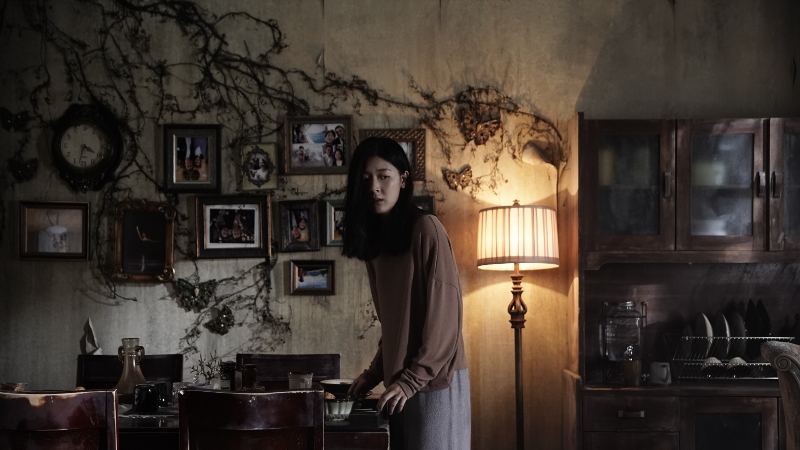Director – Glenn Chan – 2020 – Hong Kong, China – 94m
*****
A forensic lady psychiatrist becomes convinced that a fellow psychiatrist’s treatment of his patients is encouraging them to commit murder – playing in the UK as part of the Chinese Visual Festival which runs until Sunday, July 25th
Award-winning social worker Chu kills his mother, wife and little girl before throwing himself out of a second floor window in a suicide attempt. Psychiatrist Dr. Tsui Ching (Stephy Tang from My Prince Edward, Norris Wong Yee-Lam, 2019; The Empty Hands, Chapman To, 2017) possesses the ability to see inside the subconscious mind of her patients, something she experiences like a vivid dream. She appears in a public talk before an audience alongside Dr.Yan. When he asks her view of humanity, she expresses her belief that people are inherently good. He thinks they are inherently bad, ascribing their motives to selfishness.
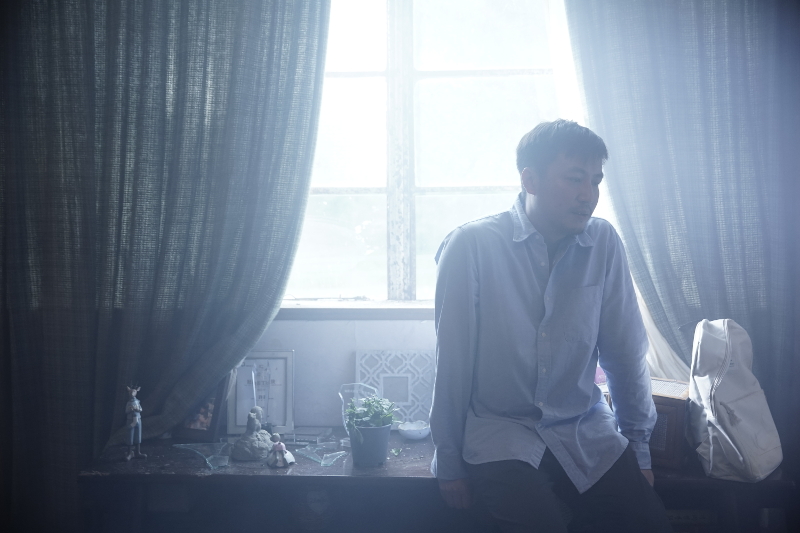
When Chu turns out to have been one of Dr.Yan’s patients, Tsui becomes convinced that by telling them to embrace their dark side rather than repress it, he is effectively encouraging them to commit murder. Advising Ho (Philip Keung – A Witness Out Of The Blue, Fung Chi-Keung, 2019; Tracey, Li Jun, 2018; Shock Wave, Herman Yau, 2017), the cop who is investigating the case, she persuades him without any admissable evidence to investigate all of Yan’s patients. Using her skillset to eliminate improbable suspects, she homes in on one in particular, a care home nurse who, they have yet to discover, is “saving” (i.e. killing) terminally ill old people who have been abandoned by their relatives. Pursuing suspects by such dubious methods gets Ho suspended.
However, Dr.Yan may not be quite what he seems to be. Nor may Dr. Tsui who has personal demons lurking in her troubled past.
The script cleverly takes us inside Tsui’s mind as she deals with patients and their subconscious. In her first sequence, confronting timid and terrified patient Kloudia, she finds herself trying to comfort the woman who lies distressed in a bathtub, only for a second woman to appear from under the water to try and pull Tsui under and drown her. Chan throws in black special effects creeping over the walls and two shots of camera zoom and track going in opposite directions after Hitchcock (Vertigo, 1958) by way of Spielberg (Jaws, 1975) and numerous other movies since.
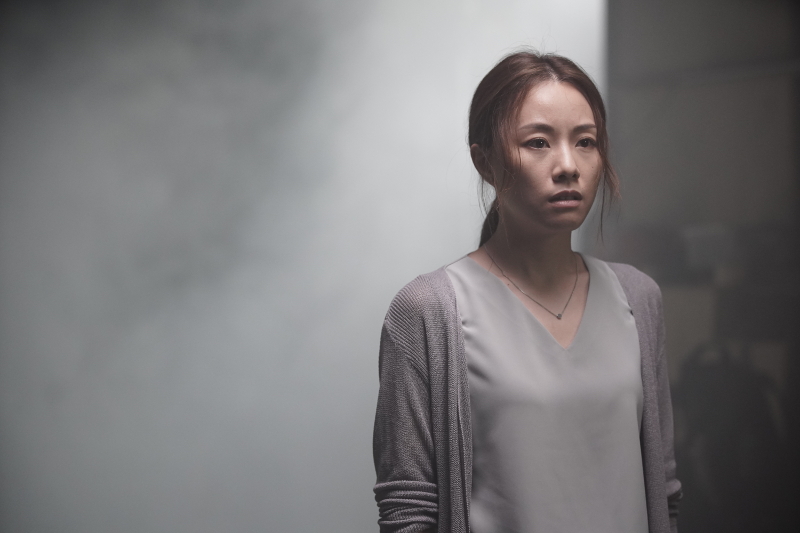
Talking to Chu, Tsui witnesses through his mind the killing and its aftermath. We’ve already seen a broad outline of this incident right at the start, but Tsui’s vision fleshes it out in terms of Chu’s motivation with his mother siding with his wife as she questions him about whether he’s seeing another woman (there’s no suggestion whatsoever that he might be) while his small daughter ignores him by playing computer games at the dinner table.
When left alone with the care home assistant in his apartment, she sees what’s going on in his mind as he tries to stab her with a pair of scissors, a bizarre religious ritual in which he sits on a throne in his role as the saviour of his victims who appear as caped worshippers.
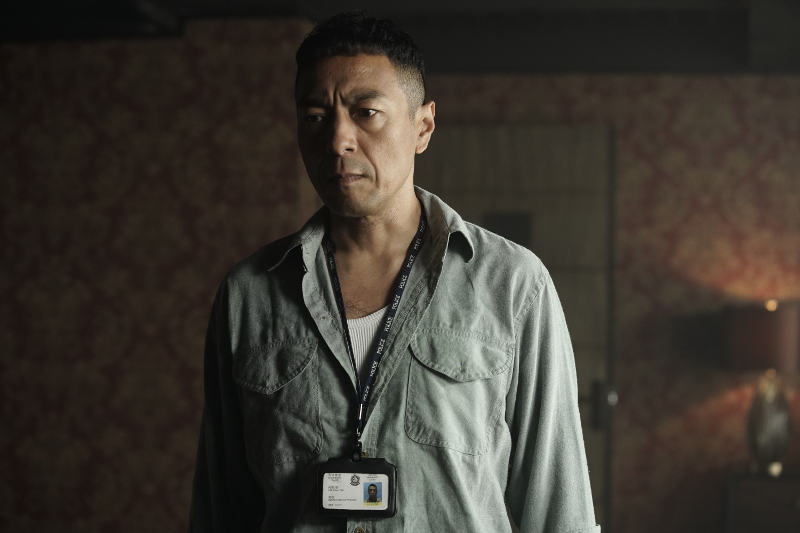
Another of Yan’s patients is a teacher at the primary school of the cop’s young daughter Dao-Dao (Keira Wang). He notices the cop’s inability to pick up his daughter on time from school and logs deficiencies in other pupil’s parents too, eventually using the occasion of a school play to unexpectedly threaten and assault them with a gun.
All this could so easily have been hackneyed, but a lot of solid work on the script along with Chan’s efficient directing which manages to never quite go over the top ensures the whole affair is highly effective. Philip Keung turns in a solid, workmanlike performance of a cop trying to do his job whilst struggling with his commitments as a single father. Instantly likeable child actor Wang lights up the screen whenever she appears and copes well with the scene where her teacher turns into a gunman.
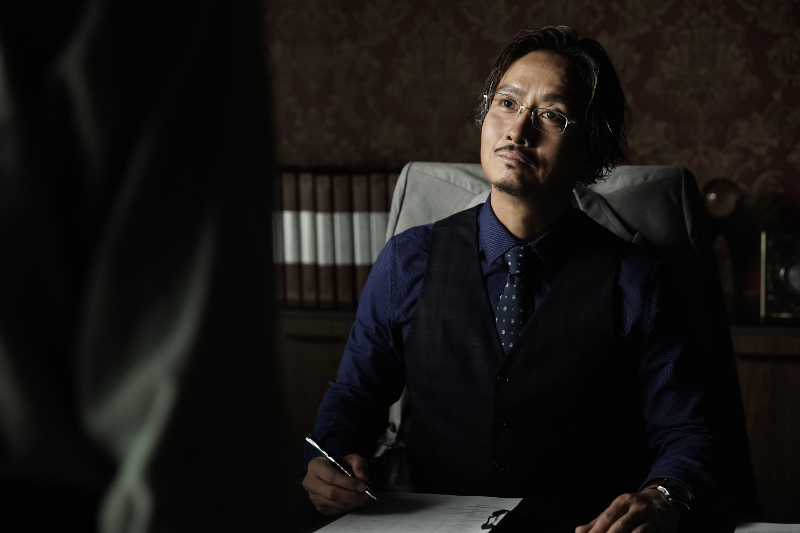
The rival psychiatrist is actually quite creepy as he harps on about people embracing their dark side and how human beings are basically selfish: you wonder why patients would want to go to him rather than someone else. At the same time, though, his ever so slightly unsettling presence sparks off against Tang’s more optimistic practitioner. And it’s Stephy Tang who carries the film as she manages to make a potentially preposterous scenario quite believable, proving that her very different performances in action drama The Empty Hands and romantic drama My Prince Edward were no fluke. If a little pulp-y at times, this is engaging throughout and is thoroughly recommended.
The Shadows plays in the UK as part of the Chinese Visual Festival which runs until Sunday, July 25th.
NFT3, BFI Southbank, 3.10pm, Sunday, July 25th, tickets here.
Trailer:
NB All the English language publicity for the film refers to it as Shadows. The title on the English subtitled print shown to UK press, however, is The Shadows – which I take to be the correct English language title.
